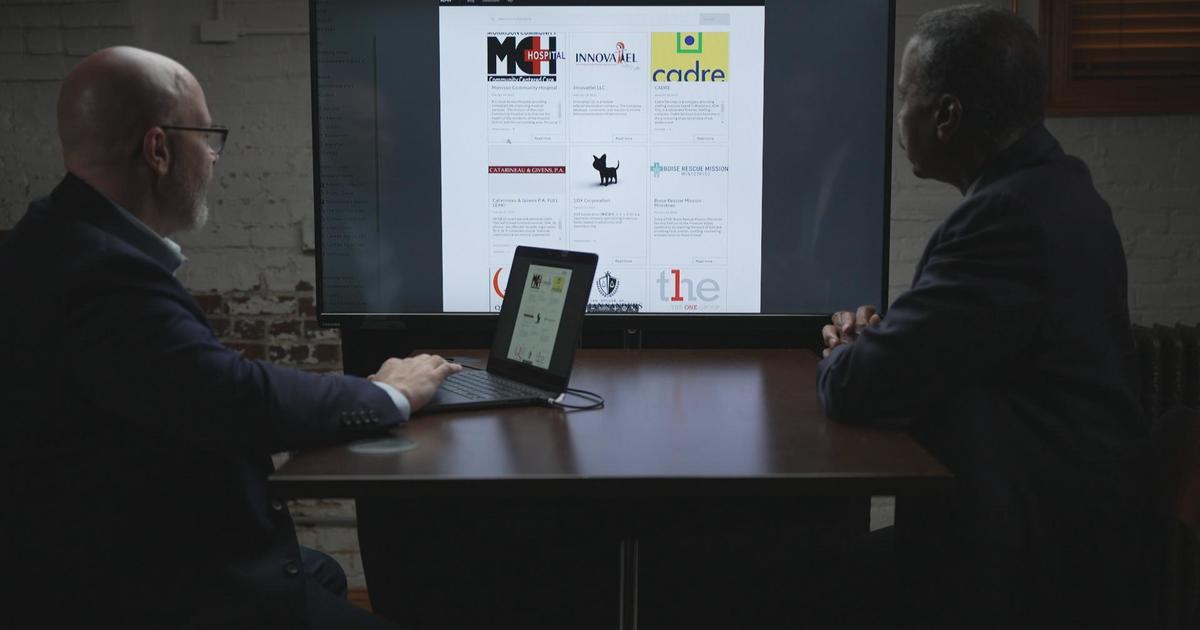Tennessee zipper company in crosshairs of buy-American laws
DUNLAP, TENNESSEE — Robert Kwasnik has a zipper problem — and it has come to the attention of the highest levels of the U.S. government.
Kwasnik is president of Dunlap Industries, a small manufacturing company in Appalachia that for more than 15 years made zippers for U.S. military uniforms — until last year, when a competitor complained that not all of the parts the company was using were from the U.S.
The irony? It was a Japanese company that filed the complaint.
A federal law known as the Berry Amendment requires the government to give preference to products made and sourced in America. But in today's global economy, Kwasnik says it is next to impossible to have every component of a product sourced in the U.S. As a result, he says, the law — which was introduced around the time of World War II to protect U.S. defense businesses — is now benefiting Japan-based YKK Corp., the world's largest manufacturer of zippers.
The company's YKK North America division manufactures zippers in Georgia — and now has some of the contracts Dunlap lost. Division president Jim Reed said in a statement that his company filed the complaint against Dunlap because the price of products offered by "certain competitors" was too low for them to have been completely manufactured in the U.S.
Headquartered in the town of Dunlap, Dunlap Industries was created in 1966 with the aid of the University of Tennessee and the Tennessee Valley Authority to help people in the job-scarce Sequatchie Valley. Kwasnik says losing the contracts has forced him to lay off a dozen workers, and he has to struggle to find enough projects to keep his remaining 90 employees busy.
"We find ourselves fighting for American workers just so they can keep their jobs and support their families," he said.
The problem began when YKK complained that Dunlap was using a slider — the small tab and attachment that is pulled up and down to open and close a zipper — made in Asia.
Although it is unclear whether there was a link, the company filed its complaint sometime after President Donald Trump issued an executive order in April 2017 seeking to bolster protections for U.S. companies and products.
A June 20, 2017, memo from the Defense Department's director of defense procurement and acquisitions policy called for improved compliance with both the Berry Amendment and another so-called Buy American law that is on the books pertaining to products the government purchases from all industries. Recent reports from the Department of Defense Inspector General found many defense contracts were not in compliance with the Berry Amendment.
It wasn't clear whether Dunlap was cited in those reports or whether Trump's order led to the revocation of Dunlap's military-uniform business. The Associated Press requested documents specific to the Dunlap dispute from the Federal Bureau of Prisons— which awarded the contracts because the uniforms are made by inmates — but officials have not provided them.
The major component of Dunlap's zippers, such as the fiber to which they are attached, are made in the U.S., Kwasnik said. He said the slider is a subcomponent, and, "We don't feel like the Berry Amendment requires that we use domestic subcomponents."
Buying all subcomponents from domestic companies would be too expensive, he said.
Reed says all components of YKK North America's zippers do indeed come from the U.S.
"We have invested millions of dollars in our U.S. manufacturing operations to ensure the products we supply to the U.S. military comply with the Berry Amendment," he said in a statement.
In today's economy, where product supply chains are increasingly global, it's harder for companies to manufacture products from only domestically sourced materials, as much pressure as there is for firms to do so, said Morris Cohen, a professor at the Wharton School of the University of Pennsylvania.
On the other hand, he said, if a company like YKK is "using U.S. workers and U.S.-based suppliers to sell the product, so all the value added is coming to the U.S. as the law requires, why do we care who owns the company?"
Kwasnik said he tried to buy sliders from YKK, but the company wouldn't sell them to him.
The issue has caused enough concern among Tennessee lawmakers that one of them, Republican Sen. Lamar Alexander, raised it with U.S. Secretary of Defense Jim Mattis in a budget hearing earlier this year. But even that wasn't enough to save the jobs at Dunlap.
Kwasnik also has sought help from Republican U.S. Rep. Scott DesJarlais, who introduced legislation to exempt the non-textile components of zippers from the law. But several organizations, including the Alliance for American Manufacturing, vigorously opposed that attempt. Kwasnik said they misunderstood what DesJarlais was trying to do.
Small businesses like Dunlap industries create 70 percent of new jobs in the U.S., Kwasnik said, adding, "Thousands of such jobs could go to multinational corporations if the law ... is not clarified."



